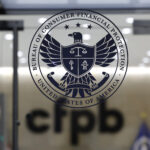On Wednesday, June 12, the Sente Banking Committee will be hosting Consumer Financial Protection Bureau (CFPB) Director Rohit Chopra, as he testifies at before the Committee at a hearing titled, “The Consumer Financial Protection Bureau’s Semi-Annual Report to Congress” beginning at 8:45 a.m. Central.
Leadership takes the stand
Chopra, as Director of the CFPB is responsible for day-to-day management at the Bureau, a unit of the Federal Reserve System charged with protecting families and honest businesses from illegal practices by financial institutions, and ensuring that markets for consumer financial products and services are fair, transparent, and competitive. As Director, Chopra is also a member of the Board of Directors of the Federal Deposit Insurance Corporation (FDIC) and the Financial Stability Oversight Council (FSOC).
In 2018, Chopra was unanimously confirmed by the U.S. Senate as a Commissioner on the Federal Trade Commission (FTC), where he served until assuming office as CFPB Director. During his tenure at the FTC, he successfully worked to strengthen sanctions against repeat offenders, to reverse the agency’s reliance on no-money, no-fault settlements in fraud cases, and to halt abuses of small businesses. He also led efforts to revitalize dormant authorities, such as those to protect the Made in USA label and to promote competition.
Chopra previously served at the CFPB from 2010-2015. In 2011, the Secretary of the Treasury designated him as the agency’s student loan ombudsman, where he led the Bureau’s efforts on student lending issues. Prior to his government service, Chopra worked at McKinsey & Company, the global management consultancy, where he worked in the financial services, health care, and consumer technology sectors.
Recent CFPB actions
The CFPB has had a busy first half of 2024, including:
- Finalizing a rule outlining the qualifications to become a recognized industry standard setting body, which can issue standards that companies can use to help them comply with the CFPB’s upcoming Personal Financial Data Rights Rule. The new rule identifies the attributes that standard setting bodies must demonstrate in order to be recognized by the CFPB. The rule also includes a step-by-step guide for how standard setters can apply for recognition and how the CFPB will evaluate applications.
- The CFPB has issued “CFPB Circular 2024-03: Unlawful and Unenforceable Contract Terms and Conditions,” warning against the use of unlawful or unenforceable terms and conditions in contracts for consumer financial products or services. According to CFPB Circular 2024-03, companies use fine print tactics to try to trick consumers into believing they have given up certain legal rights or protections. When financial institutions take these types of actions, they risk violating the Consumer Financial Protection Act of 2010. Issuance of the Circular by the Bureau is part of the CFPB’s broader efforts to ensure freedom and fairness in consumer interaction with financial institutions.
- The CFPB recently launched an inquiry into junk fees that are increasing mortgage closing costs. In its “Request for Information Regarding Fees Imposed in Residential Mortgage Transactions,” the CFPB wants to understand why closing costs are increasing, who is benefiting, and how costs for borrowers and lenders could be lowered. According to the CFPB, from 2021-2023, median total loan costs for home mortgages increased by more than 36%. These fees due at closing can strain household budgets and a family’s ability to afford a down payment, as well as limit the ability of lenders to offer competitive mortgages because they must absorb the higher costs, or pass them on to borrowers.
- By a 7-2 vote, the U.S. Supreme Court recently said that the CFPB was constitutionally-funded, and that funding of the Bureau is in compliance with the Constitution’s Appropriations Clause. The Supreme Court’s ruling reverses a prior decision by the U.S. Court of Appeals for the 5th Circuit ruled that the CPFB’s funding violates the Constitution and should be subject to Congressional appropriations. The case, Consumer Financial Protection Bureau v. Community Financial Services Association of America, tested the Appropriations Clause of the U.S. Constitution that reads: “No Money shall be drawn from the Treasury, but in Consequence of Appropriations made by Law; and a regular Statement and Account of the Receipts and Expenditures of all public Money shall be published from time to time.”
Click here for more information on the Senate Banking Committee’s Hearing, “The Consumer Financial Protection Bureau’s Semi-Annual Report to Congress.”
Also in The Week Ahead
- Fannie Mae’s Refinance Application-Level Index (RALI) (Tuesday)
- Talks on the Terrace: A CoreLogic Update in Bermuda (Tuesday)
- Harvard Joint Center for Housing Studies: Leveraging Data, Collaboration, and Innovation to Improve Neighborhoods (Tuesday)
- MBA Weekly Applications Survey (Wednesday)
- Realtor.com Weekly Housing Market Recap (Wednesday)
- House Financial Services Committee: The Semi-Annual Report of the Bureau of Consumer Financial Protection (Thursday)
- Freddie Mac Primary Mortgage Market Survey (Thursday)
- U.S. Department of Labor’s Unemployment Insurance Weekly Claims Report (Thursday)





